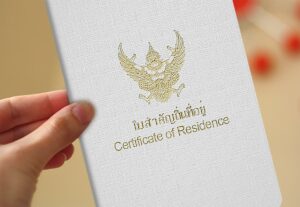Property taxes in Thailand are a significant consideration for both local and foreign property owners. The tax landscape in Thailand has undergone changes in recent years, particularly with the introduction of the Land and Building Tax Act B.E. 2562 (2019), which replaced the old house and land tax system. This article provides an in-depth exploration of the various property taxes in Thailand, including who is liable, how they are calculated, and the implications for property owners.
Overview of the Land and Building Tax Act B.E. 2562 (2019)
The Land and Building Tax Act came into effect in 2020, marking a major shift in how property taxes are levied in Thailand. This legislation was introduced to increase efficiency, fairness, and clarity in the taxation of property, particularly in differentiating between different types of property usage.
1. Scope of the Act
- The Land and Building Tax Act applies to land, buildings, and condominium units. Under this law, property owners, including individuals and legal entities, are required to pay an annual tax based on the usage of the property.
- Properties are classified into four categories: agricultural, residential, commercial/industrial, and unused or vacant land. Each category has different tax rates and exemptions.
2. Tax Rates and Calculations
- Agricultural Land: The tax rate for agricultural land is the lowest among the four categories. The rates start from 0.01% and can go up to 0.1% depending on the assessed value of the land.
- Residential Property: For residential properties, the tax rates range from 0.02% to 0.1%. The rate depends on whether the property is used as a primary residence or for other residential purposes.
- Commercial/Industrial Property: This category includes properties used for business, industry, and commerce. The tax rates range from 0.3% to 0.7%.
- Unused or Vacant Land: Land that is left unused is taxed at a higher rate to discourage speculation. The initial rate starts at 0.3% and increases every three years, with a maximum cap of 3%.
Property Transfer Taxes
In addition to annual property taxes, owners and buyers must consider taxes that apply during the transfer of property ownership. These taxes are particularly relevant during the sale, purchase, or inheritance of property.
1. Transfer Fee
- The transfer fee is 2% of the appraised value of the property, as determined by the Land Department. This fee is typically shared between the buyer and the seller, but this can be negotiated. The appraised value used by the government for tax purposes is often lower than the market value, which can result in a lower tax burden.
2. Specific Business Tax (SBT)
- The Specific Business Tax applies at a rate of 3.3% of the appraised value or the actual sales price, whichever is higher. This tax is usually paid by the seller. SBT is applicable when the property has been owned for less than five years, except in certain cases such as inheritance or transfers between close family members.
3. Stamp Duty
- Stamp duty is an alternative to SBT and is charged at a rate of 0.5% of the registered sale price. However, stamp duty is only payable if SBT does not apply. The seller typically pays this tax, but this can also be negotiated between the parties involved.
Personal Income Tax on Property Sales
When an individual sells a property in Thailand, the gain from the sale may be subject to personal income tax (PIT). The tax is calculated based on a withholding tax system, which is usually deducted at the time of transfer.
1. Withholding Tax
- For individuals, the withholding tax is calculated based on the official appraised value of the property and the length of ownership. The longer the property has been held, the lower the effective tax rate, as there are allowances for each year of ownership. The tax rate is progressive and varies depending on the holding period and the seller’s tax status.
2. Corporate Sellers
- If the seller is a company, the withholding tax is calculated at a flat rate of 1% of the appraised or selling price, whichever is higher. This tax is withheld at the point of sale and is considered a pre-payment on the company’s income tax.
Tax Implications for Foreigners
Foreigners owning property in Thailand must be aware of the specific rules and regulations that apply to them, particularly in relation to property ownership, investment, and taxation.
1. Foreign Ownership Limits
- Foreigners can own up to 49% of the total area of all units in a condominium building, but they cannot own land outright. However, they can lease land for up to 30 years, with the possibility of renewal, or invest through a Thai company or a long-term lease.
2. Taxation on Rental Income
- Foreigners earning rental income from property in Thailand are subject to Thai income tax. The tax is progressive, with rates ranging from 0% to 35%, depending on the total income. Rental income is typically subject to a 5% withholding tax at the time of payment, which is credited against the final tax liability.
Tax Exemptions and Reductions
Certain exemptions and reductions are available under the Land and Building Tax Act and other related laws, which can significantly reduce the tax burden for property owners.
1. Primary Residence Exemption
- For individuals who own and live in their property as their primary residence, the first 50 million THB of the property’s appraised value is exempt from taxation. This exemption does not apply to properties used for rental or commercial purposes.
2. Agricultural Land Exemption
- Land used for agricultural purposes may be exempt from taxes if it falls below a certain value threshold. This exemption aims to support the agricultural sector and small-scale farmers.
3. Reduction for Newly Acquired Properties
- Properties that have recently been acquired may be eligible for a tax reduction in the first year of ownership. This reduction is part of an incentive program to encourage property transactions and investment.
Compliance and Penalties
Failure to comply with property tax obligations in Thailand can result in penalties and interest charges. Property owners must ensure that they are fully aware of their tax liabilities and meet all deadlines for payment.
1. Filing and Payment Deadlines
- The annual property tax must be paid by the end of April each year. The tax is assessed by the local municipality, which sends out tax notifications to property owners. Payments can be made at the local district office or through authorized banks.
2. Penalties for Late Payment
- Late payment of property taxes incurs a penalty of 1% per month on the unpaid tax amount. If the tax remains unpaid after three years, the authorities may seize and auction the property to recover the owed taxes.
Conclusion
Understanding property taxes in Thailand is crucial for both Thai nationals and foreign property owners. The tax system, particularly following the introduction of the Land and Building Tax Act, is designed to be more transparent and equitable, though it can still be complex.
Property owners should be diligent in understanding their tax obligations, seeking professional advice where necessary, and ensuring timely compliance to avoid penalties. With the right knowledge and planning, property ownership in Thailand can be a rewarding investment, free from unexpected tax surprises.
You might also enjoy

Thai Business Partnership
A Thai business partnership is one of the most commonly

Thailand Permanent Residency
Thailand Permanent Residency (PR) is a highly sought-after immigration status

Child Custody in Thailand
Child custody in Thailand is governed by the Civil and


